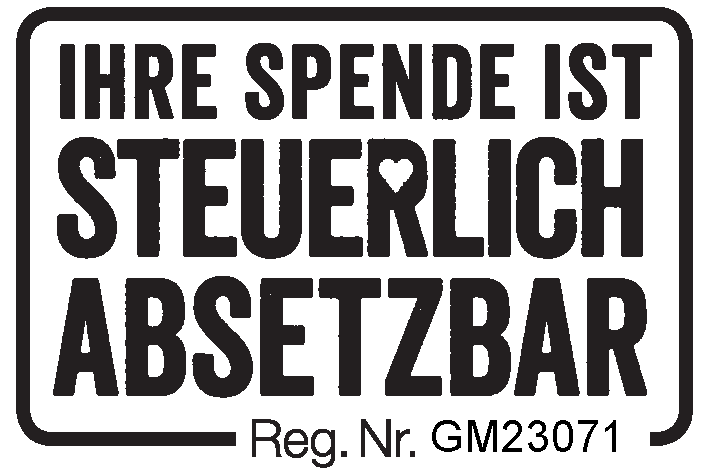Over the past few years we have seen specialist refuge services in England lurch from funding crisis to funding crisis with no promise of sustainable funding from either local authorities or central government. Despite the uncertainty around refuge funding, the one unchanging factor is that the demand for refuge spaces continues to far exceed the places available. Still, every day in England, our 2015 Annual Survey shows, 92 women and 75 children are turned away from refuges, normally due to there being no space available for them (1).
SOS: Save Refuges, Save Lives Campaign
From 2010 – 2014 Women’s Aid found that 17% of specialist women’s refuges closed, and the future of many more services was hanging in the balance. The rapid decline in service provision was primarily down to two key factors after funding for services was delegated to local authorities by central government:
1) Huge swathes of local authority funding cuts, through a prolonged period of austerity. This source of funding pays for the support costs of women’s refuges, such as staff time.
2) Poor local commissioning practices which do not take into account the specialisms within the sector and do not understand the way refuges operate as a network allowing women to move freely across local authority boundaries to safety.
These issues were particularly acute and damaging for local services supporting women from Black and Minority Ethnic (BME) communities (2). The value of these highly specialist services, which hold significant national importance was not always recognised locally, so we saw and intervened in many situations where local authorities either wanted to subsume these services into larger, non-specialist, organisations or to decommission them completely.
Women’s Aid launched the SOS: Save Refuges, Save Lives campaign back in September 2014 and successfully brought the issue of refuge closures to the general public and heart of Government. In December 2014, after significant public outcry and media interest, we were able to secure a £10 million investment in refuges and, in June 2015, a further £3.2 million which provided additional resources until 31 March 2016. Whilst only short term pots of funding, this additional resource enabled some services that were on the brink of closure to remain open and others to increase their numbers of beds.
When we launched the SOS campaign we asked survivors of domestic abuse, what their refuge had meant to them. Here are some of the things that they told us:
“Going to a refuge saved my life, and gave hope and a future to my children…it has given me the support and strength that has helped me to re-build my life.” “My refuge literally saved my life and saved the life of my baby son. My ex was breaking into my flat, he’d have killed me if we hadn’t gone to the refuge.” “Specialist refuges are a doorway to the life we all deserve.” “The specialist refuges mean people care whether I live or die.”
We also asked children and young people in refuges to tell us what their safe house had meant to them by making us a ‘word cloud’.
The impact of the Government’s ‘welfare reforms’
Despite the success of the SOS campaign, the additional, short term funding and our on-going work with the Government to protect the funding for the support costs for refuges, there is a fresh crisis facing refuges across our network today regarding the rent costs of refuges. In the UK women have to pay for their stay in a refuge, most of the time this cost will be met by the woman usually by her claiming ‘Housing Benefit’ which covers her rent and the upkeep of the refuge. However, not all women will qualify for Housing Benefit, for example if they have a job or if they do not have residency rights.
Part of the UK Government’s response to austerity has been to reduce welfare spending by £12 billion by 2017/18 and they have brought in legislation to enact these cuts, many of which have been highly controversial and will potentially be very damaging for support services. For example, some services will not be able to accept women without children as their Housing Benefit entitlement will now be too low. There are currently seven different ‘welfare reform’ policies that Women’s Aid is concerned about, the most dangerous of which is a cap to housing benefit in the supported housing sector, including refuges, to Local Housing Allowance rates. What this in practice means, for refuge services, is on average, a 44% reduction in the rent element of the funding they receive. We asked refuge services across England what this would mean for them and 67% of them told us they would have to close and 87% told us that they would not be able to continue with their current level of provision. After successful campaigning from Women’s Aid, in September 2016 the Government announced that refuges, alongside other types of ‘supported housing’ such as homeless hostels, will be exempt from the Local Housing Allowance rate reform until 2019. Whilst we welcome this move, we are convinced that a long term funding solution is needed and a solution that also ensures that, not only enough refuges are available, but that they can also provide the right kinds of support. We will continue to campaign on the other six areas of welfare reform which are of great concern to us.
Women with multiple and additional support needs
Our 2015 Annual Survey of member services found that increasing numbers of women with multiple support needs are accessing refuges. The survey showed that 33.7% of refuge residents had mental health support needs, about one in ten women had alcohol or drug misuse support needs and 13.3% required multilingual support. The increasingly diverse set of needs that women are presenting at refuge with is not translated into additional funding for specialist support workers or 24-hour staff. We are seeing quite the opposite in fact: funding cuts are forcing services to cut back on the support they can provide and there are increasing difficulties around affording to employ, more expensive, skilled drug and alcohol workers, for example. Our Update of UK Refuges Online (UKROL) (3) services in 2015 found that increasingly domestic abuse services are listing that they can support women with mental health, drug or alcohol issues, to respond to this growing need, however there was no commensurate increase in staffing. In fact, we found out that of the 60 organisations who had added one or more new ‘service type’ to their profile on UKROL, only 38% of them also stated that they had increased their staff team, in fact 23% of them stated that they had to contend with a decrease in the number of staff working at their organisation. This further increases the tension between the need to deliver high quality services for women with increasingly complex needs and continually reducing resources.
By drawing attention to the issues that survivors of domestic abuse with multiple issues face in accessing services, we received a small pot of Government funding to set up the No Woman Turned Away (NWTA) project. This project helps women who are struggling to access refuge accommodation find suitable and safe accommodation via a caseworker situated at WAFE head office. An initial analysis of the first six months of this project shows that the most common reasons for which women are declined space in a refuge are (of 151 cases the NWTA Turned Away team supported from January to May 2016):
› The space was no longer available in 48 cases (meaning the refuge space had already been given to another woman)
› The woman’s support needs were too high for the refuge to support in 17 cases
› 17 women had no recourse to public funds, for example if she is not a British citizen or if she does not have the necessary immigration status
› In 15 cases the woman did not meet the ‘risk’ threshold for the refuge service
› The space was not suitable for a disabled woman to access in 14 cases › There were multiple other complicated cases where there were various reasons why a woman could not be accommodated in a refuge
It’s important to note that women’s refuges want to be able to support all the women who turn to them for help. However, due to the issues discussed above relating to funding cuts and commissioning, it is in many cases not possible to provide the level of support and expertise needed in order to provide a safe home for women fleeing with multiple issues or additional support needs.
What’s next?
Our combined work on the WAVE Step Up! campaign across the UK is focussing on raising awareness on the value of specialist domestic abuse organisations and increasing the profile of the life-saving services they provide and the importance of women with multiple additional support needs being unable to access these services. Alongside this we are calling for the Government to ratify the Istanbul Convention without delay, which will enshrine women’s and children’s rights to access specialist support when fleeing domestic abuse in UK law. Ratification of the Istanbul Convention will be a very welcome step and is now more important than ever, after the UK’s recent vote to leave the European Union.
We are committed to ensuring that all survivors of domestic abuse can get the support and help they need, when they need it. The complex and fragile landscape of funding has left specialist domestic abuse services in constant suspense over recent years, not knowing from year to year whether they will be able to keep their doors open. The WAVE step up campaign is a vital opportunity to work together across the UK, and Europe, to ensure survivors of domestic always have somewhere safe to go in their hour of need.
By Sian Hawkins
Sian Hawkins is the Campaigns and Public Affairs Manager at Women’s Aid Federation of England. Sian leads on the SOS: Save Refuges, Save Lives campaign that has successfully secured an additional £13.2 million of funding for women’s refuges from the Government in 2014/15 and 2015/16 and the Child First campaign which is calling for safe child contact. Previously Sian was the Anti-Human Trafficking Policy Officer at The Salvation Army after studying for a Master’s Degree in Human Rights, specialising in Modern Slavery where she conducted field research in Nepal. Sian has experience as a support worker for domestic violence survivors and sex workers and is a former trustee to Reigate and Banstead Women’s Aid. She can be contacted at: S.Hawkins@womensaid.org.uk
Photo by Montse Monmo on Unsplash
Sources
1 Women’s Aid (2016) Annual Survey 2015. Women’s Aid: Bristol www. womensaid.org.uk/womens-aid-annual-survey-reports/
2 Women’s Aid recognises, and advocates that, it is vital that BME women have a known, culturally-specific organisation in their community where they can get help from other BME women who understand the complexities of their situation and the additional barriers they face. Such organisations address unmet needs and prevent harms that would prove costly and dangerous to victims if their services disappeared. Women’s Aid works closely with UK based black feminist organisation, Imkaan, who defines BME VAWG services as: independent, specialist and dedicated services run by and for the communities they seek to serve.
3 UKRefugesOnline is a web based information system providing up to date information on domestic violence/abuse services. It aims to assist women and children facing domestic violence/abuse to find the right help by enabling front-line services to notify the refuge spaces or other services they have available. UKROL is owned and managed by Women’s Aid Federation of England, Welsh Women’s Aid, Scottish Women’s Aid and Women’s Aid Federation Northern Ireland. UKROL is part supported and part funded by the Department of Communities and Local Government.





